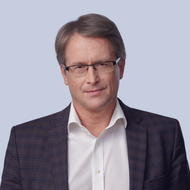HSE Accepting Applications for Competition of Best Russian-language Scientific and Popular Science Papers

Applications for the fourth HSE University Competition of the Best Russian-language Scientific and Popular Science Papers will be accepted from February 1 to March 15. The authors that receive the highest scores from the expert jury will be awarded on June 6—Russian Language Day. The main goal of the competition is to support and promote Russian language as a language of science, as well as to popularise works affiliated with HSE University among the global Russian-speaking audience.
The competition involves expert evaluation and support of Russian-language academic papers that do not qualify for bonuses, and support of Russian-language popular science works that contribute to increasing the recognition of HSE University. The organisers will support up to 100 works in various research fields.
HSE University First Vice Rector Vadim Radaev highlights the importance of working with the Russian-speaking audience: ‘Firstly, it’s rather wide, and not only in Russia. Secondly, despite the increase in the level of English proficiency in recent years, especially among younger generations, many colleagues are much more likely to read an article in Russian. Thirdly, in mathematics or physics, the language is neutral and it does not matter in which language the researcher presents the results, while in the humanities, language is directly related to meaning. The scientific idea here relates to the language, and if we change the language, we may lose the meaning. Finally, most of our activities, including educational and scientific activities, are implemented in Russian. This means that we must develop a Russian-language terminological and conceptual framework.’
The rules of the competition remain the same. It has been held since 2021 in two categories:
The best academic paper in Russian (on humanities, social sciences, and natural sciences). Publications in this category can be published by any academic journals or publishing houses, regardless of their place in certain lists or scientometric databases.
The best popular science project in Russian (books, lectures, video channels, social networks, podcasts, online projects, etc).
Any Russian-language paper published in the previous two calendar years and authored by an HSE student, doctoral student, or employee affiliated with the university can be submitted to the competition.
Authors can’t submit their own works. HSE University deans and heads of academic departments, members of academic committees, the HSE Public Relations Office, or initiative groups of HSE employees including at least three people can nominate participants.
An HSE faculty academic committee will carry out the initial selection of applications in the second half of March. The works will be then submitted to the jury, which will determine the winners in each of the two categories by the beginning of June. Vadim Radaev, HSE University First Vice Rector, and Olga Dragoy, HSE Tenured Professor, Chief Researcher at the Centre for Language and Brain, are the heads of the jury in the academic paper category.
In 2023, 258 works were submitted to the competition in both categories, which is a quarter more than the number of works submitted the previous year. Moreover, the increase was mainly due to works submitted in the academic paper category. A total of 84 works won in the competition.
Vadim Radaev notes that the determining factor for winning in the academic paper category is the content of the work. ‘It should be scientifically significant. We assess the level of presentation, the relevance of the topic, the conceptual framework, and compare the work to other works in this field. There is nothing specific here—it’s the usual procedure for evaluating academic papers. The work of an unknown author can also win the competition,’ he says. ‘It is also important that the work is comprehensible, logical, and written in good Russian—that is, well perceived by the reader. This is not a decisive criterion, but it is especially important for our competition, for the humanities, and in many ways for the social sciences.’
See also:
16
is the number of categories in this year’s research competition for HSE students and graduates.



